Berlin cracks down on holiday apartments
- Published
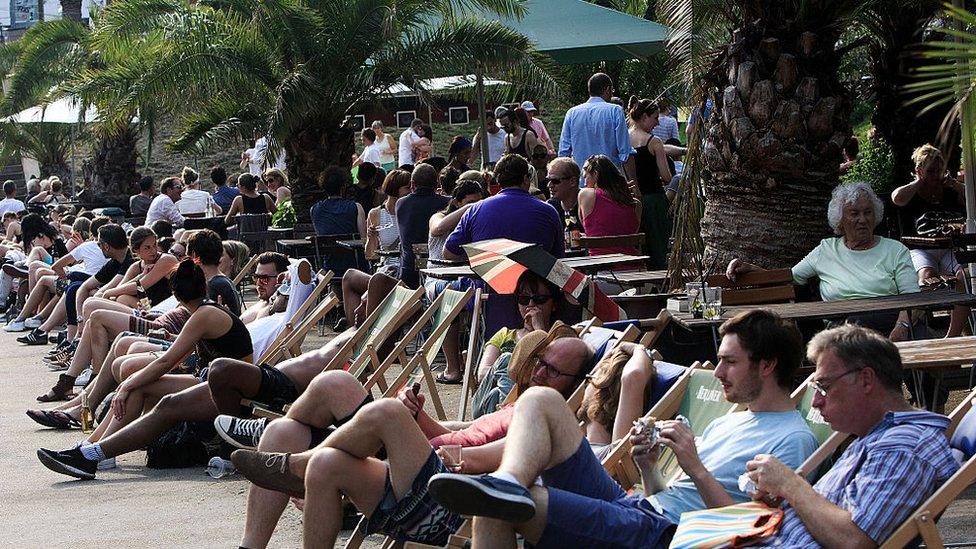
This year, holidaymakers will find fewer flats to rent in Berlin
Visitors to Berlin this summer will find there are fewer holiday apartments available than usual on websites like AirBnB. That's because Berlin's city government has banned most holiday flats.
Critics say the law is an anti-business infringement of property rights, but the move is popular with Berliners.
"There's the flat. You can tell by the curtains," says Diana Schmidt laughing, pointing to the first floor of a 1950s block. "They often all use these same Ikea curtains."
We're on a tour of the Berlin district of Mitte. But we're not taking in the sights. We're on the hunt for holiday flats which are being let out to tourists - something which since May 1 is in most cases banned.
Lettings crackdown
Diana, a friendly middle-aged woman, is an inspector whose job is to track down illegal holiday apartments. Owners could face fines of up to €100,000 (£78,000: $112,000).
She and her colleague Karsten go out most days, following up on tip-offs from Berliners who suspect that there is a holiday flat in their building.
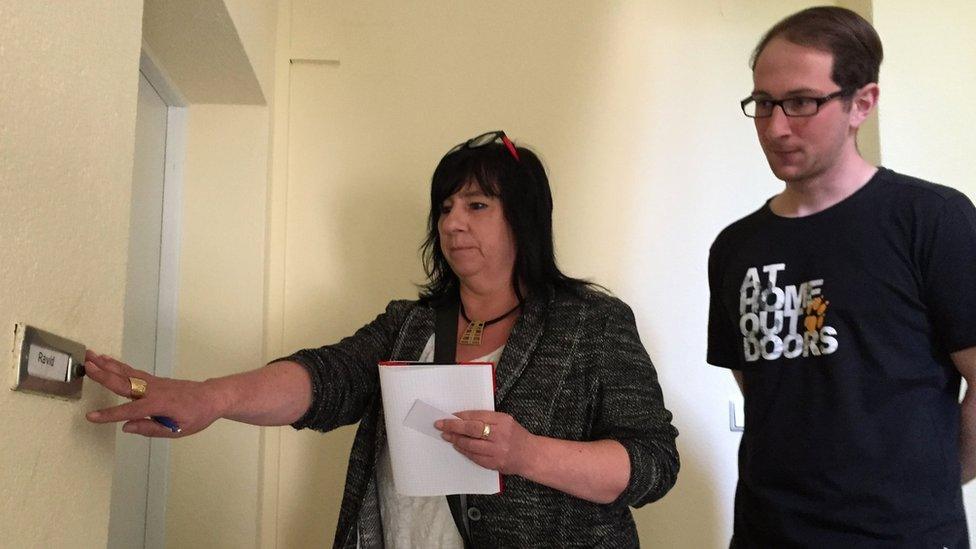
Diana Schmidt and her colleagues get up to 20 complaints a day about illegal holiday apartments
"First we check the buzzers at the building's front door," explains Karsten. "Often that shows something like 'holiday flat 1' rather than a surname."
A neighbour entering the building goes in and we follow behind, go up the stairs and ring the bell of the suspected illegal holiday flat: no answer.
So Diana rings the bell of a neighbour, shows her government ID to the smiling young women who opens the door, and explains that she's part of a team trying to stamp out illegal holiday lets.
"It can get pretty noisy," the neighbour says nodding. "I don't think there's anyone there at the moment, but there was last week."
Another neighbour says seven young tourists stayed in the one-bedroom flat last week. She's had enough of the all-night partying and never knowing who's in the building.
Popular support
Given Germany's painful 20th Century history of state surveillance, some critics have accused the government of snooping. But Diana says that she gets overwhelming support from neighbours.
"People are happy to see us. They're always friendly and helpful," she says.
"That's because these holiday flats really aggravate people - whether because of noise or dirt.
"People want to have neighbours who they know. And that's why people get in touch with us."
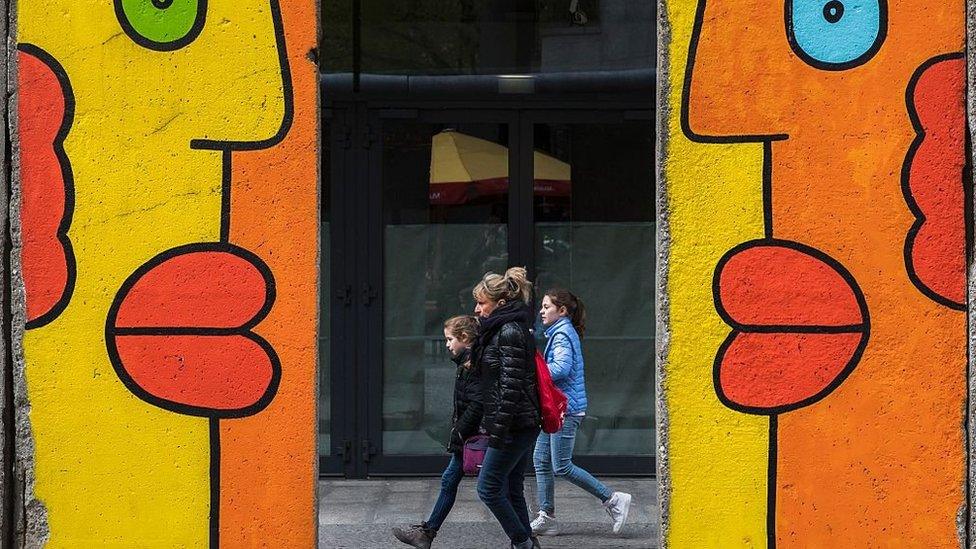
Renting affordable housing in Berlin is becoming an increasing problem for many locals
But while that makes the law popular, that isn't the reason why Berlin's city government has decided to ban most holiday apartments. It's because of rising rents and a growing lack of housing in the city.
Between 2009 and 2014 rents shot up by 56% in Berlin.
And the city has become a magnet for young creatives from all over the world, so Berlin's growing population means it's increasingly difficult to find affordable housing.
The influx of more than a million migrants and refugees to Germany in 2015 is adding to the challenge.
Many blame holiday flats for exacerbating the problem by taking apartments off the market. Letting out an apartment to tourists for a few days can sometimes earn you as much as a typical rent for a month.
The accusation is that holiday lets are pushing up rental prices for local people.
The city's move is popular with many. "I really agree with it," says Anna, a student in her twenties who was born in Berlin.
"Air BnB is a rip off for tourists. I think the cheap flats should be for people who really need them like refugees and single mothers and people who work in Berlin."
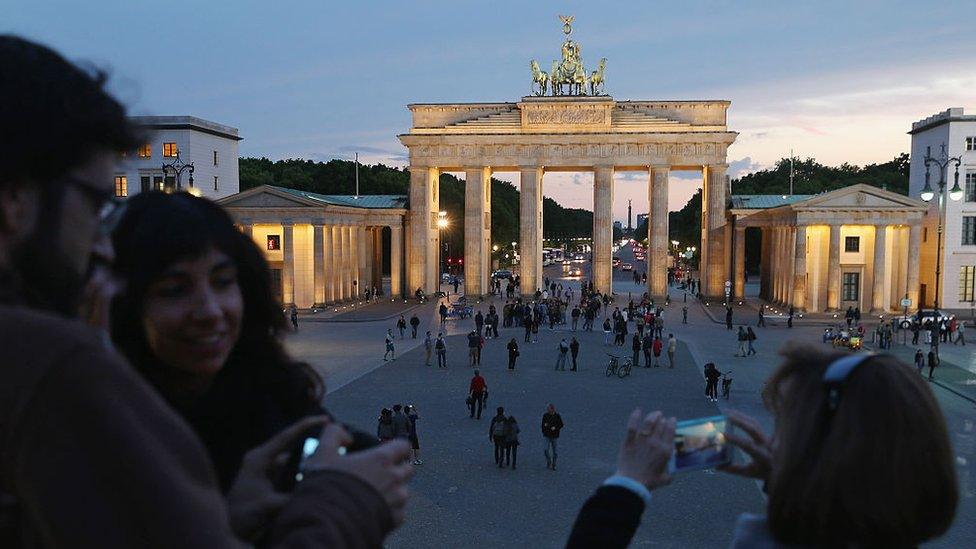
Letting out an apartment to holidaymakers for a few days can sometimes bring in as much as typical rent for a month
Social welfare
"If you have to decide between tourists or families, it's the people who live here we have to take care of first," says Stephan von Dassel, deputy mayor for Berlin's district of Mitte, who is one of those behind the law.
Usually people think of Germany as pro-free market and of letting business operate without intervention from the state. But Stephan von Dassel argues that the social welfare of the wider community trumps the individual rights of some businesses or property owners.
Vacation apartment owners don't agree. In a pretty red-brick courtyard, surrounded by plants in terracotta pots, I meet another Stephan, Stephan la Barre.
These were once stables and derelict factory buildings in a socially deprived area of Berlin. But 12 years ago Stephan invested millions converting the site into 15 small holiday apartments for families.
At the time Germany was known as the sick man of Europe and Berlin was plagued by high unemployment and poverty. So the local authorities encouraged Stephan's project.

Berlin had previously encouraged the development of flats for holiday rent
Today though it's not jobs that are lacking but housing. Stephan says the political mood has changed and now he's being targeted.
"They are making us scapegoats for the failures of government policy. They sold lots of social housing and now we are being held responsible for their bad housing decisions," he tells me.
"Usually in German society you have these social housing programmes. You have special buildings with cheap rents, or you have subsidies.
"But they sold many of these buildings. So the government has made the problem it's now facing."
In June the courts will decide if Stephan can be exempted from the ban. Otherwise his business will close and six people will lose their jobs.
'Real shame'
When you chat to tourists many are surprised to hear about the ban, and in some cases are baffled.
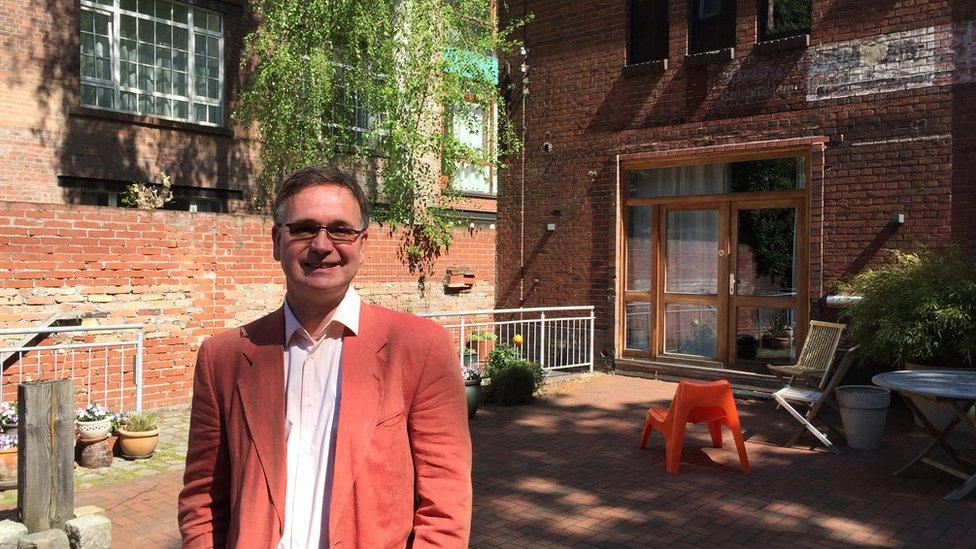
Apartment landlord Stephan la Barre says people like him are being blamed for government policy failures
"We love holiday apartments. And we've done that for years," says one man from southern Germany who's visiting Berlin with his family.
"I think it's a real shame. And I don't understand how the government can say this is suddenly how it is, but that before it was different. It's difficult to comprehend."
"You should be allowed to carry on renting them," says one elderly woman who's here with her husband. "The government should think again, and scrap the ban."
Meanwhile back at the suspected illegal holiday apartment, Diana chats to the neighbours as if she's known them for years - nodding and commiserating with them over the problems caused by noisy neighbours.
She's more like a counsellor than a government inspector.
As she hands out her business card all the neighbours say they will definitely contact her the next time the apartment is let out to tourists.